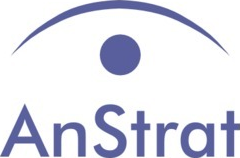
- Local Name: N/a
- Transliteration: N/a
- Alternatives: N/a
- Status: 2014 – dormant
- Conflicts: Russian Militancy in the Donbas
The Krutani, Cataldo and Palmeri Network [KCPN] was an informal constellation of Italian Russophiles which served as a channel for the recruitment of fighters for Russian militant forces operating in eastern Ukraine.1 At its height, the network had at least fifteen core members.2 The KCPN was imbedded within Italy’s significant pro-Russian milieus. Members were in touch with well-known supporters of Russia, including Irina Osipova and Gianluca Savoini.3 Although the majority of KCPN elements shared a right-wing worldview, several left-wing radicals were also associated with the network.4 Its most prolific members were Andrea Palmeri, a fascist from Tuscany who headed a band of football ultras, and communist Olsi Krutani, an Albanian living in Milan.5 Little is known about the structure of the KCPN, but was possibly made up of different branches whose members did not directly interact with each other.
The KCPN emerged in the wake of the outbreak of violence in eastern Ukraine. Orazio Gnerre probably played a key role in its formation. He had set up a small organization around 2010 that was devoted to spreading the continentalist ideas of Aleksander Dugin.6 Gnerre’s personal ties to the Russian philosopher gave him credibility despite his young age.7 Already in 2014, Gnerre had organized a meeting with Palmeri to discuss the situation in the Donbas region.8 Gnerre also became acquainted with martial arts instructor Krutani who in turn was connected to the Essence of Time [SV; Sut Vremeni] movement that advocated the reestablishment of the Soviet Union.9 Gnerre and Krutani used martial arts training sessions to advocate for the Russian cause and gather associates.10 Gnerre furthermore used his political connections and a support organization that he had founded with a left-wing associate to develop contacts with Russian separatist leaders. During a 2014 visit to Donetsk, he met with Pavel Gubarev and Denis Pushilin.11 Krutani also had contacts in the region through his involvement with Russia’s martial arts scene.12
Palmeri became the first member of the KCPN to travel to the Donbas in 2014.13 He was followed by other associates of the network. By the end of the year, some KCPN fighters were battling Ukranian troops in the ranks of different Russian militant organizations at the airport of Donetsk.14 Others took part in the Russian drive to oust the Ukrainians from the town of Debaltseve in early 2015.15 Former soldier and private military contractor Antonio Cataldo arrived in eastern Ukraine in February 2015 and went on to serve as a liaison between KCPN members in the Donbas and their supporters in Italy.16 He also recruited further combatants.
In the Donbas, key KCPN operatives initially did not keep a low profile. They boasted about their exploits on social media and were regularly featured in Russian separatist propaganda materials.17 The men also gave interviews to the Italian press. KCPN combatants received financial compensation from the rebel authorities.18 They fought for various militant organizations, including the East Battalion [BV, Batalon Vostok] and the Ghost Brigade [BP; Brigada Prizrak]. Most of them eventually ended up in the ranks of the People’s Militia of the Luhansk People’s Republic [NMLNR; Narodnaya Militziya LNR].19 Members also maintained close links to elements within the SV and the infamous national-socialist Rusich Sabotage and Assault Reconnaissance Group [DShRG-R; Diversionno-Shturmovaya Radvedyvatelnaya Gruppa Rusich].20 By 2017, most KCPN members had significantly lowered their profile.
Italian authorities had in the meanwhile started to investigate the KCPN after learning of its existence while tracking down the authors of pro-Nazi graffiti tags on a church in La Spezia in 2013.21 Investigators found that the perpetrators were connected to Gnerre and in turn began looking into his activities. This led to the discovery of the KCPN’s recruitment of fighters for the Donbas.22
On Aug. 01, 2018, police launched a series of raids against the network in the Avellino, Milan and Parma provinces.23 Cataldo and Krutani were among the three men apprehended during the operation. Police also searched the homes of seven other people affiliated with the KCPN.24 The judiciary later issued international arrest warrants for key network operatives who were still in eastern Ukraine. Six KCPN elements were eventually charged with unauthorized enlistment in the service of a foreign state.25
On Jul. 02, 2019, a court in Genoa sentenced Cataldo, Krutani and one of their associates to relatively short prison terms.26 Palmeri received a similarly lenient five-year prison sentence when he was judged in absentia on Sep. 29, 2021.27 Italy’s crackdown significantly degraded the KCPN. Some network operatives remain active on the frontlines in eastern Ukraine. Others like Krutani and Palmeri have taken on new roles as pro-Russian propagandists or representatives of the separatist statelets in eastern Ukraine.28 The current status of the KCPN is unclear.
References
